

(Astronomical Observatory, University of Warsaw)
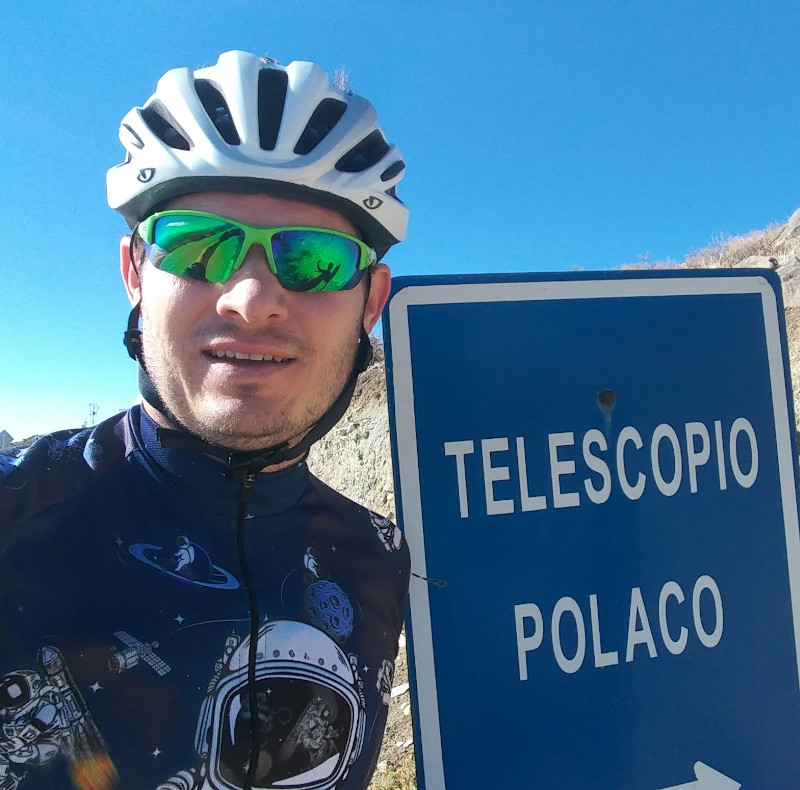
Thesis title: Physical Parameter of Symbiotic Stars
Supervisor: Joanna Mikołajewska
Year of defence: 2010
(Center for Theoretical Physics of the Polish Academy of Sciences, Poland)
Thesis title: Cosmology of the Scalar-interacting Dark Matter
Supervisor: Roman Juszkiewicz
Year of defence: 2010
(Nicolaus Copernicus Astronomical Center, Toruń)
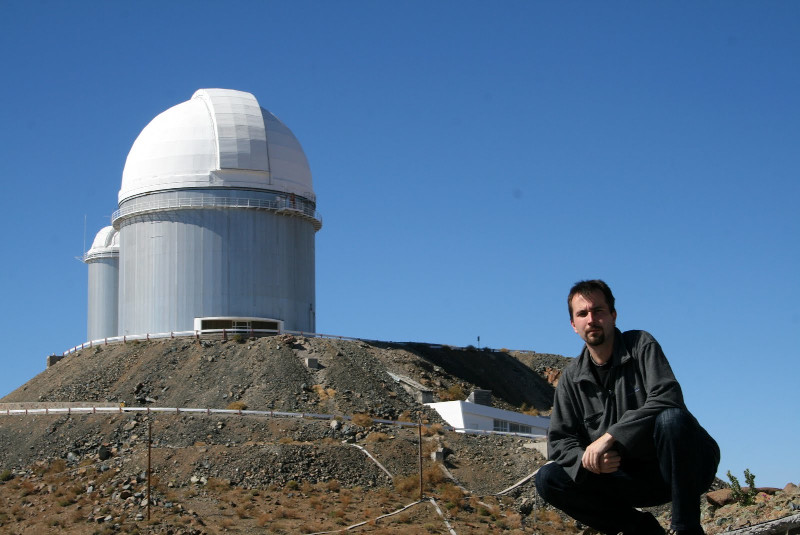
Krzysztof was born in Barlinek. He obtained his master's degree in astronomy from the Nicolaus Copernicus University in Toruń based on the work on astrometry of visual binaries with adaptive optics. In 2006 he started PhD studies at the NCAC Toruń, working on low-mass stars in binaries, under the supervision of Prof. Maciej Konacki. He obtained his PhD in October 2010, and immediately started his post-doc position at the Pontificia Universidad Catolica in Santiago, Chile. He extended his work on eclipsing binaries to other types of stars, and established the Comprehensive Research with Echelles on the Most interesting Eclipsing binaries (CREME) project, aimed at looking for and characterizing rare, unusual, and otherwise valuable stellar pairs. This work has been continued during his second post-doctoral term, at the Subaru Telescope in Hawaii. In 2016 Krzysztof came back to where he started - Toruń - to continue his work at the NCAC branch.
He is broadly interested in eclipsing binaries, their observations and modelling, as well as looking for planets around them. During his time in Chile and Hawaii, Krzysztof was also working in several large international collaborations, like the Vista Variables in Via Lactea (VVV), Strategic Exploration of Exoplanets and Disks with Subaru (SEEDS) or the Hyper-Supreme Cam (HSC) consortium, as well as helped in several other projects (e.g. HAT-South, Kepler). He is also involved in the Solaris project, namely in the search for circumbinary bodies with eclipse timing variations. He continues his work on precise characterization of eclipsing binaries, focusing on the satellite-borne observations with TESS and (future) PLATO missions. He is also one of the most active Polish astronomers in terms of proposals submitted to ESO.
His favorite aspect of the astronomer's job are the travels. Apart from Chile and Hawaii, his work duties (observations, conferences, scientific collaborations) took him for example to Australia, Argentina, South Africa, Brazil, or Japan.
Thesis title: Derivation of Fundamental Parameters of Late-Type Stars in Binaries with Precise Photometry, High-Resolution Spectroscopy, Imaging with Adaptive Optics and Optical Inteferometry
Supervisor: Maciej Konacki
Year of defence: 2010
(Nicolaus Copernicus Astronomical Center, Toruń)
Thesis title: Observations of Molecular Material in the Echo of V838 Monocerotis in Rotational Transitions of CO. The Nature of the Echo Material and Photo-Processing of Dust in the Light Echo
Supervisor: Romuald Tylenda
Year of defence: 2010
Thesis title: Selected Aspects of Gravitational Interaction Between a Protoplanetary Disk and a Protoplanet
Supervisor: Michał Różyczka
Year of defence: 2010
(Niels Bohr Institute, Denmark)
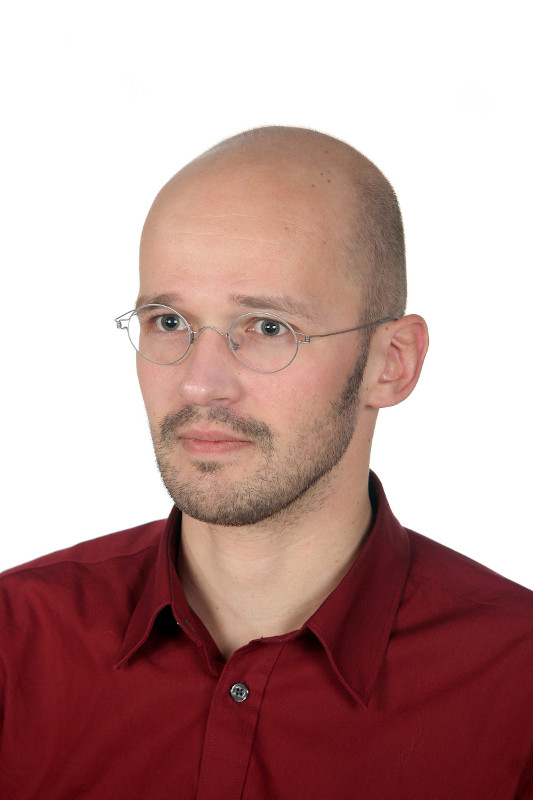
Radek Wojtak studied astronomy at the Jagiellonian University. His PhD research undertaken in the NCAC was focused on developing new dynamical models of galaxy clusters for the purpose of constraining dark matter content in these objects. He obtained a Ph.D. degree in 2010 and then he worked as a postdoctoral fellow in the Niels Bohr Institute (DARK excellence centre) at the University of Copenhagen and Stanford University. In 2017 he returned to the Niels Bohr Institute, where he is currently an associate professor. His current scientific interests include topics such as dark matter and dark energy, cosmological simulations, gravitationally lensed supernovae and observational tests of cosmological models. He is a member of the Young Supernova Experiment transient survey, where he leads a group searching for gravitationally lensed supernovae. He is also co-coordinating establishing a data centre of the Rubin Observatory (LSST) in Denmark.
Thesis title: Mass Distribution and Galaxy Orbits in Nearby Galaxy Clusters
Supervisor: Ewa Łokas
Year of defence: 2010
Thesis title: Tidal Evolution of Dwarf Galaxies in the Local Group
Supervisor: Ewa Łokas
Year of defence: 2011
(Nicolaus Copernicus Astronomical Center)
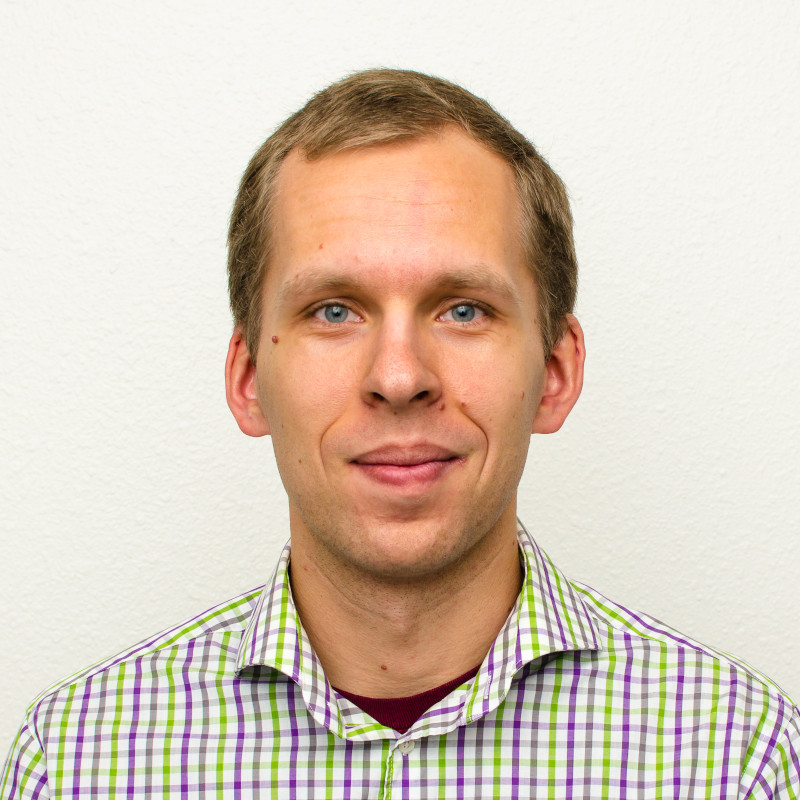
Krzysztof Nalewajko grew up in Ostróda, at high school he was a winner of the national astronomical olympiad. He studied astronomy at the University of Warsaw and went on to CAMK for Ph.D. studies, working on the topics of dissipation in relativistic jets of active galaxies and non-thermal emission of blazars under the supervision of Prof. Marek Sikora. He obtained a Ph.D. degree in 2011 and went on for postdoctoral positions in the USA. He spent 3 years at the University of Colorado Boulder, working with Profs. Mitchell Begelman and Dmitri Uzdensky on relativistic magnetic reconnection and kinetic plasma simulations. In 2013 he was awarded the NASA Einstein Postdoctoral Fellowship. He then spent 1 year at the Stanford University, working with Profs. Roger Blandford and Grzegorz Madejski. In 2015 he returned to CAMK for a tenure-track position, obtained habilitation in 2017 and became a tenured institute professor in 2018. He continues working on kinetic simulations of relativistic magnetic reconnection, utilizing the largest Polish supercomputers. Official website: https://users.camk.edu.pl/knalew/
Thesis title: Reconfinement Shocks in Jets of Active Galaxies
Supervisor: Marek Sikora
Year of defence: 2011

Aleksander Sądowski studied accretion flows on black holes through numerical simulations. He was a postdoctoral fellow at Harvard-Smithsonian Center for Astrophysics and an Einstein Fellow at Massachusetts Institute of Technology. He developed KORAL - one of the most sophisticated, at that time at least, numerical codes for performing radiative simulations of magnetohydrodynamical flows in strong gravitational fields. Currently, he is a senior quantitative researcher at Akuna Capital where he optimizes algorithms trading in financial markets.
Thesis title: Slim Accretion Disks Around Black Holes
Supervisor: Marek Abramowicz
Year of defence: 2011
Thesis title: Astrophysical Estimation of the Black Hole Spin
Supervisor: Marek Abramowicz
Year of defence: 2011
(Center for Theoretical Physics of the Polish Academy of Sciences, Poland)
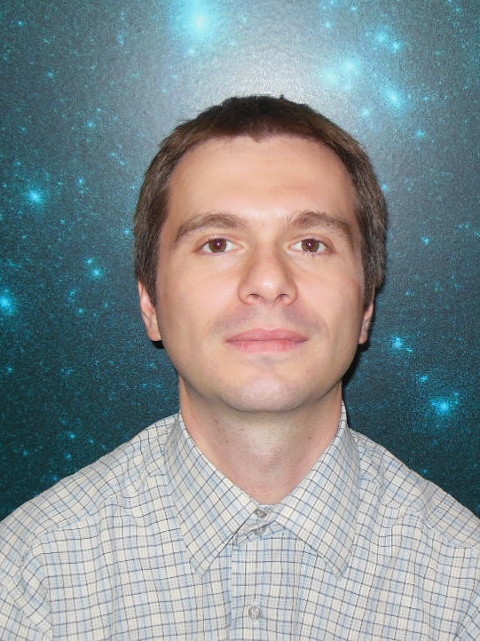
Thesis title: Motion of the Local Group as a Cosmological Probe
Supervisor: Michał Chodorowski
Year of defence: 2012
Thesis title: Analysis of stellar propoer motions in the fields of neary globular clusters
Supervisor: Janusz Kałużny
Year of defence: 2012
(Nicolaus Copernicus Astronomical Center)
Thesis title: Evolution & Dynamics of Neutron Stars: from Microphysics to Astrophysics
Supervisor: Leszek Zdunik
Year of defence: 2012
Thesis title: O rezonansach ruchu średniego we wczesnych etapach ewolucji układów planetarnych
Supervisor: Ewa Szuszkiewicz
Year of defence: 2012
(University of Maryland, Baltimore County & NASA Goddard Space Flight Center, USA)
Thesis title: Studies of the Influence of Magnetospheric Pulsar Winds on the Pulsar Surroundings
Supervisor: Bronisław Rudak, Alain Falvard, Yves Gallant
Year of defence: 2012
Thesis title: Detection Techniques for the H.E.S.S. II Telescope, Data Modeling of Gravitational Lensing and Emission of Blazars in HE-VHE Astronomy
Supervisor: Rafał Moderski, Jean Francois Glicenstein
Year of defence: 2013
(National Center for Nuclear Research, Poland)
Thesis title: Weak Emission Line Quasars
Supervisor: Bożna Czerny
Year of defence: 2013
Thesis title: Hybrid Oscillations of a Main Sequence B Type Stars
Supervisor: Aleksiej Pamiatnych
Year of defence: 2013
(Nicolaus Copernicus Astronomical Center)
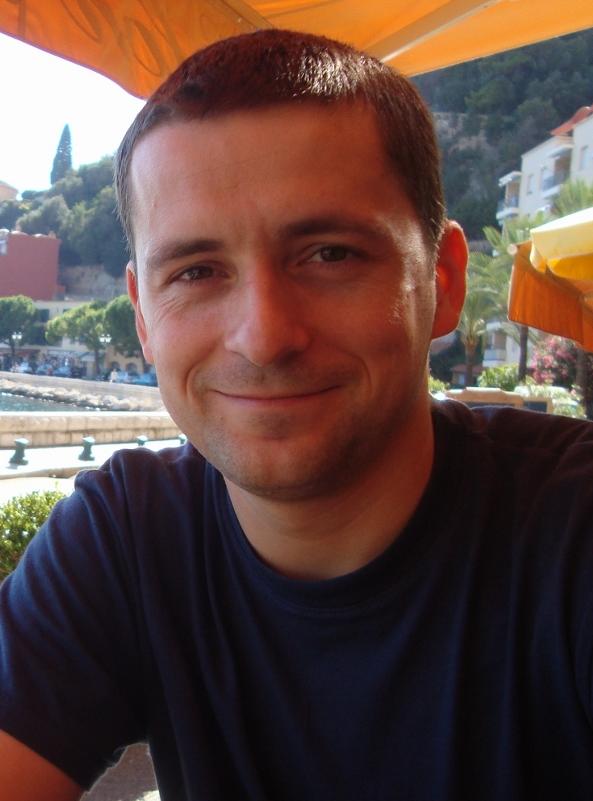
Arek studied astronomy at the Adam Mickiewicz University, and wrote his master's thesis at the Max Planck Institute in Bonn. He received his PhD at NCAC in 2014 with a thesis on blue stragglers in globular star clusters. Since then, star clusters have become his main scientific interest. He is one of the developers of the MOCCA code that can be used to perform detailed numerical simulations of star clusters of any size. In addition, he is interested in distributed data analysis. He develops BEANS software, which he uses on a daily basis to analyze hundreds of terabytes of MOCCA data. Arek worked as a postdoc in Leiden and in Poznań, he collaborated with other scientists in the USA, UK, China and Germany, and now is back at the NCAC in Warsaw.
Thesis title: Properties of blue straggler populations in evolving star clusters based on the MOCCA dynamical simulations
Supervisor: Mirosław Giersz
Year of defence: 2014
(Astronomical Observatory Institute, Adam Mickiewicz University, Poznań, Poland)

Magdalena Otulakowska-Hypka completed her master's studies at the A. Mickiewicz University (AMU) in Poznań and doctoral studies at N. Copernicus Astronomical Center in Warsaw on the topic of dwarf novae. She spent some time on research collaboration in the field of close binary stars in several foreign astronomical institutes: in Bonn, Nice, NYC, Leiden, and Garching. In the meantime, she's had two wonderful children and is now working hard to combine family life with science. She works at AMU, and her main scientific interests are now symbiotic stars and novae.
Thesis title: Study of outbursts properties of dwarf novae
Supervisor: Arkadiusz Olech
Year of defence: 2014
(University of Warsaw)
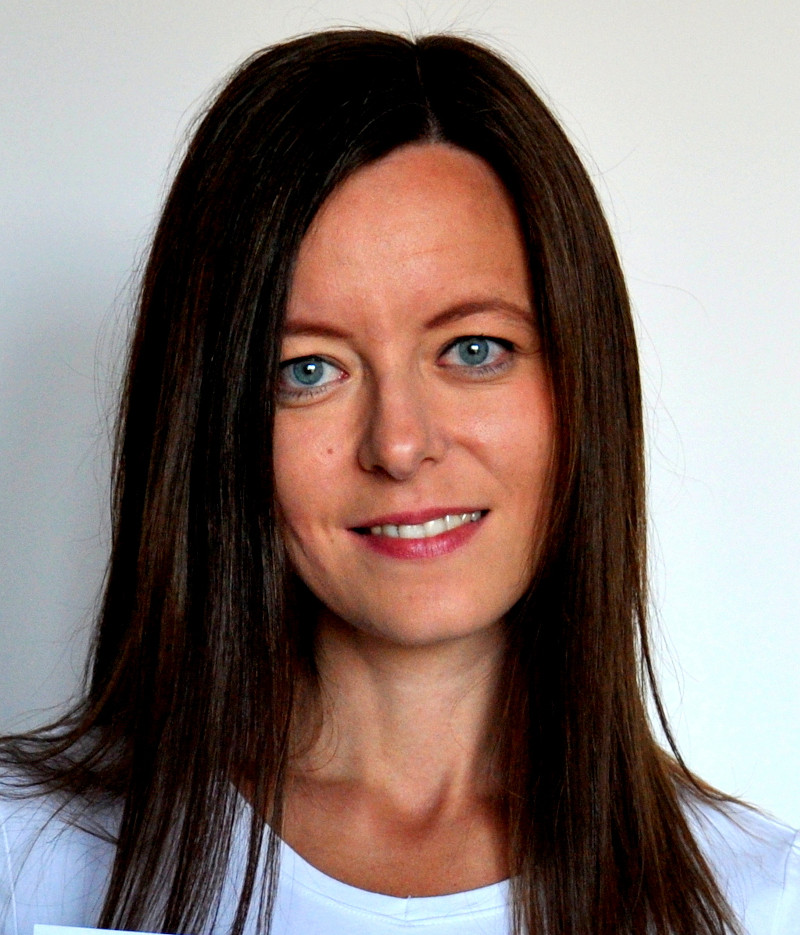
Milena was born and grew up in Poznań, where she graduated from Adam Mickiewicz University. She received her PhD degree from CAMK PAN in Toruń under the supervision of prof. Maciej Konacki. During her PhD studies she was actively involved in the Solaris project by setting up a network of robotic telescopes in the southern hemisphere. As a post-doc at the University of Wrocław, Milena started the collaboration with the BRITE consortium, which uses a constellation of nano-satellites to observe the brightest stars in our Galaxy.
Milena works at the Astronomical Observatory of the University of Warsaw as a member of the OGLE group - a large-scale photometric sky survey. Her scientific interests include variable stars, especially binary systems, as well as pulsating stars.
Apart from scientific interests, Milena is actively involved in many outreach activities. She communicates science via public talks, visiting schools, writing popular-science articles, reviewing books, and designing space-related games. She is also a Polish node representative of several international sci-comm projects and the Executive Secretary of the Polish Astronomical Society.
Thesis title: Precise determination of giant's parameters in eclipsing binary systems
Supervisor: Maciej Konacki
Year of defence: 2015
(Nicolaus Copernicus University, Toruń, Poland)
Thesis title: Comprehensive analysis of HT Cassiopeiae photometry - a Rosetta stone of dwarf novae
Supervisor: Arkadiusz Olech
Year of defence: 2016
Thesis title: Photometry and Spectroscopy of Selected Eclipsing Binaries with the Solaris Robotic Telescopes
Supervisor: Maciej Konacki
Year of defence: 2017
(Los Alamos National Lab, Los Alamos, USA)
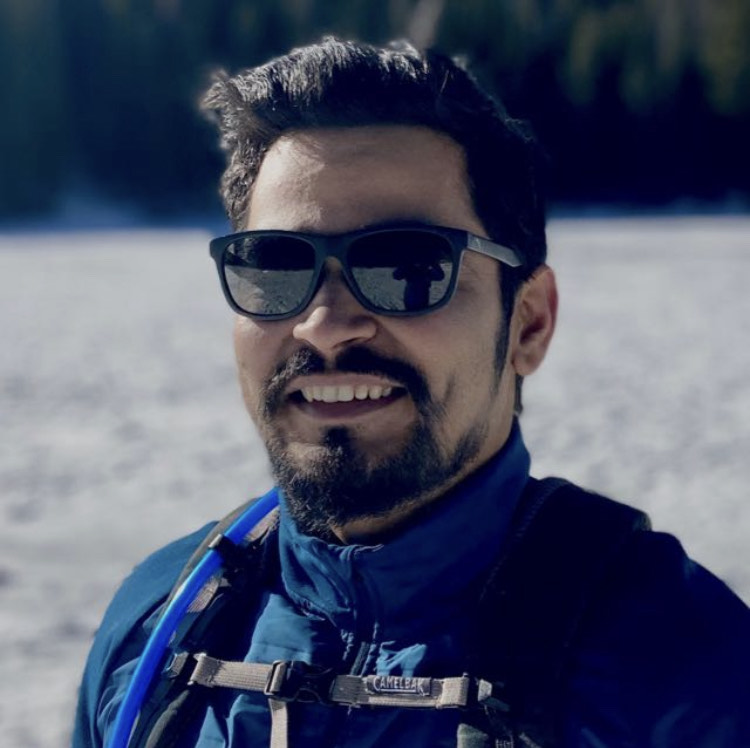
Bhupendra Mishra grew up in a small town in the state of Uttar Pradesh, India. He obtained his B.Sc. in Mathematics from Ewing Christian College, Allahabad, India. He did his M.Sc. in Physics from Indian Institute of Technology, Guwahati in 2012. Soon after M.Sc. he joined as a first foreign national PhD student of CAMK in 2012. He worked with Prof. Kluzniak and completed his PhD in 2017 on some of the first global 3D GRMHD models of thin accretion disks. He joined his first postdoc with Prof. Mitch Begelman at University of Colorado Boulder USA in 2017 and further studied strongly magnetized accretion disk models. Currently, he is a postdoctoral fellow at Los Alamos National Lab, Los Alamos, USA and working on MHD-PIC models and also global GRMHD models of AGN accretion disks.
Thesis title: General relativistic simulations of luminous and non-steady accretion flows
Supervisor: Włodzimierz Kluźniak
Year of defence: 2017
(Nicolaus Copernicus Astronomical Center, Warsaw)
Thesis title: Astrometry of selected globular clusters
Supervisor: Michał Różyczka
Year of defence: 2017
Thesis title: MHD simulations of time varying astrophysical flows
Supervisor: Włodzimierz Kluźniak
Year of defence: 2017
(Department of Astronomy and Theoretical Physics, Lund University, Sweden)
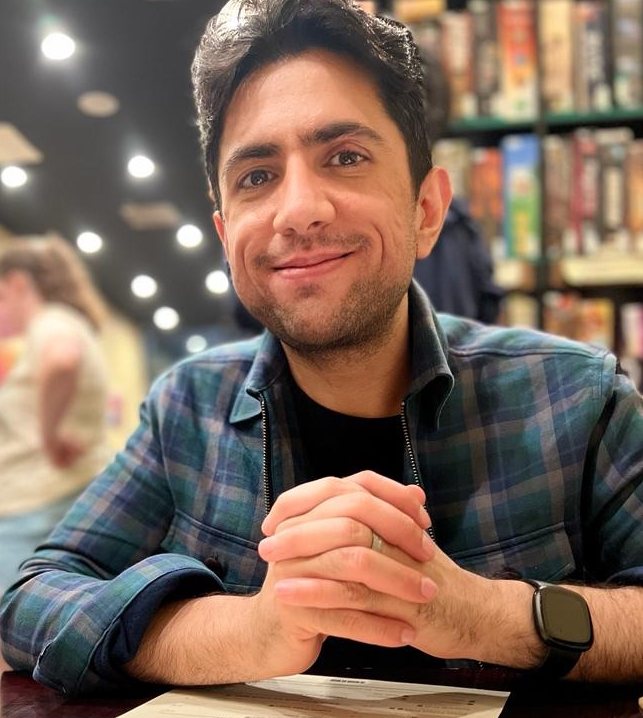
Abbas Askar was born and raised in Lahore, Pakistan, where he completed his primary and secondary education. Following the completion of his schooling in 2006, he was awarded a scholarship to attend University College Utrecht (UCU), the international honours college of Utrecht University in the Netherlands. Abbas graduated from UCU in 2009 with a Bachelor of Science (in physical sciences: astrophysics, mathematics and physics) and a Bachelor of Arts (in humanities: philosophy, religious studies and history) degree. In spring 2010, he spent a semester studying philosophy in a masters programme at the New School for Social Research in New York City. In 2010, he was selected and awarded a scholarship for the inaugural edition of the Astromundus (Erasmus Mundus) Joint Masters Degree programme in Astronomy and Astrophysics which was offered by a consortium of 5 European universities. During this programme, Abbas studied at the universities of Innsbruck (Austria), Padova (Italy) and Belgrade (Serbia). Towards the end of 2013, he joined the CAMK PhD program to work under the supervision of Prof. Mirek Giersz. For his PhD research, he used computer simulations to investigate the evolution of black hole populations within dense and massive star clusters. He is a part of the MOCCA code development team led by Prof. Giersz at CAMK. Following the completion of his PhD degree in 2018, Abbas joined Lund University in Sweden on a postdoctoral fellowship awarded by the Carl Trygger Foundation for Scientific Research. As of 2023, he is employed as a researcher in Astrophysics at Lund University. His research interests include understanding the formation, retention and growth of black holes within dense star clusters; the formation of gravitational wave sources and compact object binaries; and the co-evolution of nuclear star clusters and supermassive black holes.
Thesis title: Investigation of Black Hole Populations in Dense Stellar Systems using MOCCA code for Star Cluster Simulations
Supervisor: Mirosław Giersz
Year of defence: 2018
Thesis title: On cataclysmic variable properties in evolving star clusters based on MOCCA Dynamical Simulations
Supervisor: Mirosław Giersz
Year of defence: 2018
(Max Planck Institute for Extraterrestial Physics, Garching)
Thesis title: Tidally induces bars in dwarf galaxies
Supervisor: Ewa Łokas, Evangelie Athanassoula
Year of defence: 2018
(Nicolaus Copernicus Astronomical Center)
Thesis title: Modelling the mass distribution and orbital structure of dwarf spheroidal galaxies with Schwarzschild orbit superposition method
Supervisor: Ewa Łokas
Year of defence: 2018
(Inter-University Center for Astronomy and Astrophysics, Pune, India)
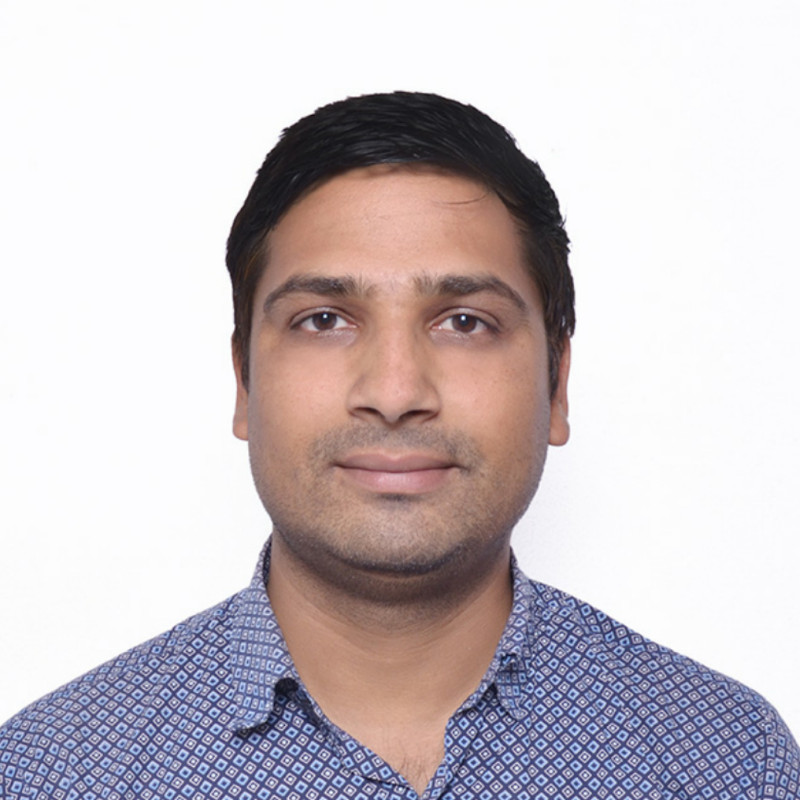
Tek Prasad Adhikari was born and grew up in Ilam, a small hilly region of Eastern Nepal. He obtained his B.Sc. in Physics from Mechi Multiple Campus of Tribhuvan University located at Bhadrapur, Nepal. He completed his M. Sc. in theoretical physics at the Central Department of Physics, Tribhuvan University, Kathmandu, and later joined as a PhD student at CAMK in 2013. During his PhD studies he worked with Prof. Agata Rozanska on various aspects of emission and absorption properties of Active Galactic Nuclei environment. Later in 2018, he received his PhD degree and he is currently working as a post-doctoral fellow at the Inter-University Center for Astronomy and Astrophysics (IUCAA), Pune, India. His current research interest is mainly focussed on building a synergy between the photoionization models and X-ray/optical observations of absorption and emission clouds present in the AGN systems. Apart from the research activities, Tek is interested in communicating science among the public and school students by writing popular articles and giving popular talks at the schools of remote areas of Nepal.
Thesis title: Photoionization modelling as a density diagnostic of line emitting/absorbing regions in Active Galactic Nuclei
Supervisor: Agata Różańska
Year of defence: 2018
Thesis title: Tidally induced morphology of late type galaxies
Supervisor: Ewa Łokas
Year of defence: 2019
Thesis title: Detection of non-keplerian effects in eclipsing binary stars: from simulations to Solaris, a global network of robotic telescopes
Supervisor: Maciej Konacki
Year of defence: 2019
To modify or update your profile please contact phdstudies@camk.edu.pl
The website was created as part of the CAMK's Foreign Promotion programme financed by the National Agency for Academic Exchange.